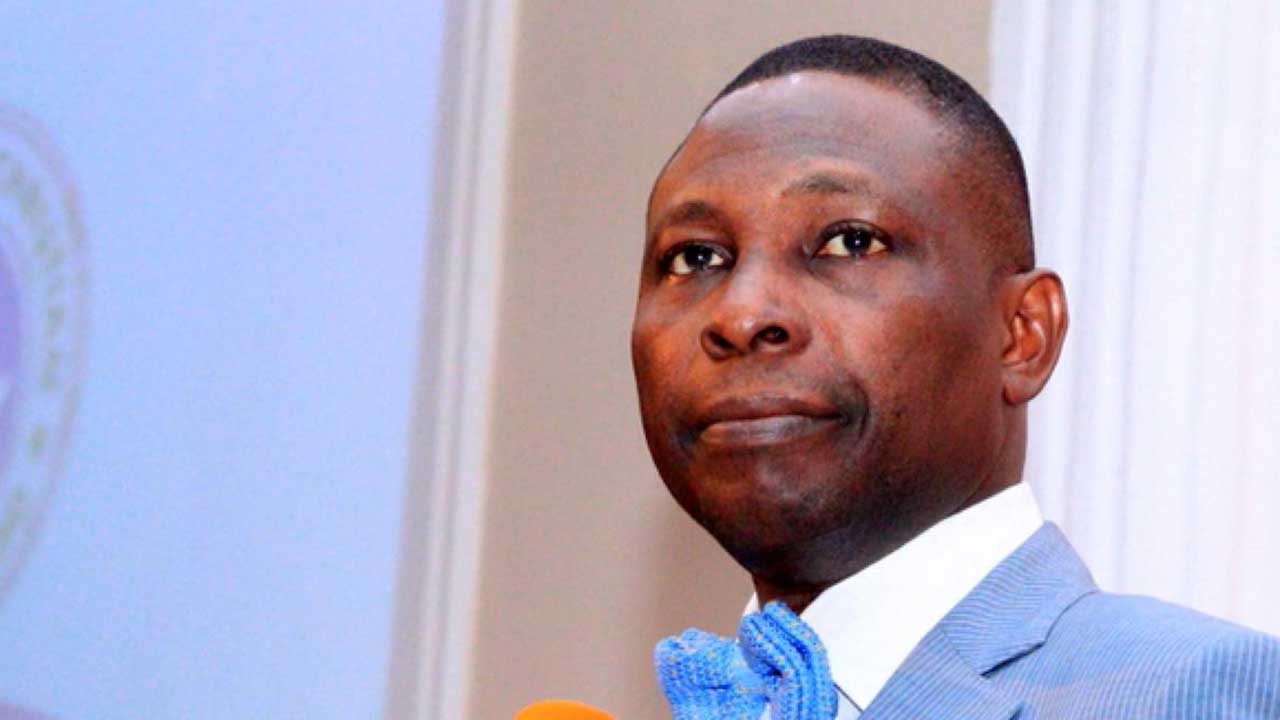Former Federal Permanent Secretary and Founder of the Goke Adegoroye Foundation, Dr Goke Adegoroye, has called for urgent reforms in Nigeria’s public service sector to address the challenge of political patronage which he says is the bane of integrity of the sector.
Adegoroye stated this at the Unveiling of the Foundation and Presentation of his book titled ‘Leadership in the Nigerian Service: Five Decades of Lessons in Performance, Encounters and Triumphs, yesterday in Abuja.
He noted that Nigeria’s public service sector is bedevilled by corruption due to political patronage thereby making it difficult data by day for public servants to uphold public trust.
“With public sector corruption becoming the oxygen of politics in Nigeria, how can the civil servant be emboldened to stand up to uphold the public trust?
“In the day-to-day operations of MDAs, (Ministries , Departments and Agencies), the line between the political class and public servants has now become so blurred and their cooperation so seamless that it is often difficult to distinguish the initiators, the aiders, the executor and the beneficiaries of corruption.” he pointed.
He argued that to establish a merit-driven public service amidst an environment where political influence often overrides accountability, Adegoroye shared insights from integrity-driven accounting officers who expressed a desire for relief from oversight by the various National Assembly committees as they approach retirement, signaling a systemic issue in governance as these commits exert political pressure straining the ability of civil servants to uphold public trust thereby caving to corruption.
He called for a renewed commitment to integrity as a key factor in selecting public service leaders, advocating for professionalism and public service as a moral obligation to serve the nation.
He also urged President Bola Tinubu to take decisive action to implement necessary reforms stresseing that the quality of civil service leadership ultimately falls on the president’s shoulders.
In his view, public sector corruption has become deeply ingrained in the political landscape, complicating the ability of civil servants to uphold public trust.
Adegoroye expressed hope that his newly presented book, “Leadership in the Nigerian Public Service: Five Decades of Lessons in Performance, Accountability, and Triumph,” would inspire a collective reevaluation of governance practices and leadership standards in Nigeria.
Speaking on for self reflection and periodic review of Nigeria’s public service sector, the Vice President Kashim Shettiima, said that Adegoroye’s book is timely as it is an invitation to reflect on the moral compass of the civil service and to curtail corruption because the service is a vehicle for lasting reforms.
According to him the book launch and foundation unveiling “Is both a celebration of a distinguished career and an invitation to reflect on the moral compass of public service.
“The public service is not a stage for performance, it is a laboratory for reform, and no reform would outlive its architects unless it is institutionalised through deliberate succession,” he said.
The Vice President adds that insisted that” A political culture that does not believe in succession is not designed to survive. It is wired to fail.
“Our history is littered with policies that began well but vanished with their pioneers because no one was prepared to carry the torch forward. We must speak plainly; for what is leadership without legacy and what is legacy if no one is trained, equipped, and inspired to uphold it? This is where we have faltered the most.”
Represented by Aliyu Modibbo, he said President Tinubu remains a unique figure in our political history. “Long before succession planning became a buzzword, he had already sown his seeds across Nigeria’s political and administrative terrain.
His genius was not only in leading but in identifying those who could lead after him in Lagos. He built institutions, empowered people, and mentored a generation of technocrats and politicians who have continued the work he has begun outside Lagos and Nigeria.”
He therefore said that Nigeria must prepare the next generation of leaders, not just by inviting them to decision-making tables but by guiding them to understand the gravity of service because “Leadership is not performance. It is sacrifice, and sacrifice cannot be taught in theory, it must be nurtured through mentorship and lived examples.
“This is why the message of this book is timely. It is a reminder that the strength of the civil service lies not only in the brilliance of its present actors but in the quality of those waiting in the wings. It tells us that no system will rise above the values of rewards. It was continued – if we continue to reward mediocrity, we cannot complain when excellence takes a backseat. If we fail to be leaders, we cannot be surprised when institutions collapse.”
In his address, Chairman of the occasion, His Royal Majesty, the Olu of Ilu Abo and Baba Obama of Akureland, Samuel Falae, stressed the importance of keeping memoirs noting their impact on generations to come as history is well documented and passed on.
In his review of the book, Professor Victor Ayeni pointed that the book is structured around a central theme of leadership, broken into twelve chapters that explore various facets of the civil service. He said the book details Adeguruye’s career, highlighting his contributions and challenges while maintaining an engaging narrative style.
The reviewer also notes that Adeguruye’s insights into the Nigerian civil service are both candid and thought-provoking, making the book a significant resource for policymakers, practitioners, and scholars. It emphasises the remarkable achievements of Dr Samuel Adeguruye, author of “Leadership in the Nigerian Civil Service: Five Decades of Lessons in Performance, Encounters, and Triumph.”
He praises Adeguruye’s unique approach to writing, which combines autobiographical elements with critical reflections on civil service leadership in Nigeria over fifty years
The author examines issues of integrity, governance challenges, and personal experiences from his career, aiming to inspire future leaders and encourage self-development.






